Return to a Historical Anthem
In a landmark decision that echoes the sentiments of the nation's founding years, President Bola Tinubu has signed the National Anthem Bill into law, reverting Nigeria's national anthem to its original version, 'Nigeria We Hail Thee.' This monumental event took place at a joint session of both chambers of the National Assembly, marking 25 years of unbroken democracy in Nigeria. The anthem, which had been replaced during the military regime in 1978, now makes a celebrated comeback, symbolizing a bridge between the past and present.
The President of the Senate, Godswill Akpabio, made the announcement with an air of reverence, presenting it as a tribute to Nigeria's enduring democratic spirit. The Deputy Speaker of the House of Representatives, Benjamin Kalu, reinforced this sentiment by urging lawmakers and visitors to download and familiarize themselves with the old National Anthem, which has now been reinstated as the standard national anthem.
Significance of the National Anthem
National anthems are more than just ceremonial songs; they are powerful symbols of a country's identity, aspirations, and unity. The return to 'Nigeria We Hail Thee' signifies a reconnection with the country's roots, evoking a sense of nostalgia and patriotism among many Nigerians. The original anthem, penned by Lillian Jean Williams and composed by Frances Berda, was an emblem of the optimism and pride that characterized Nigeria's early years of independence.
This move comes at a time when leaders are emphasizing national unity and a return to foundational values. President Tinubu’s decision aligns with recent directives to recite the National Pledge after the National Anthem at public functions, reinforcing the importance of national pride and collective responsibilities.
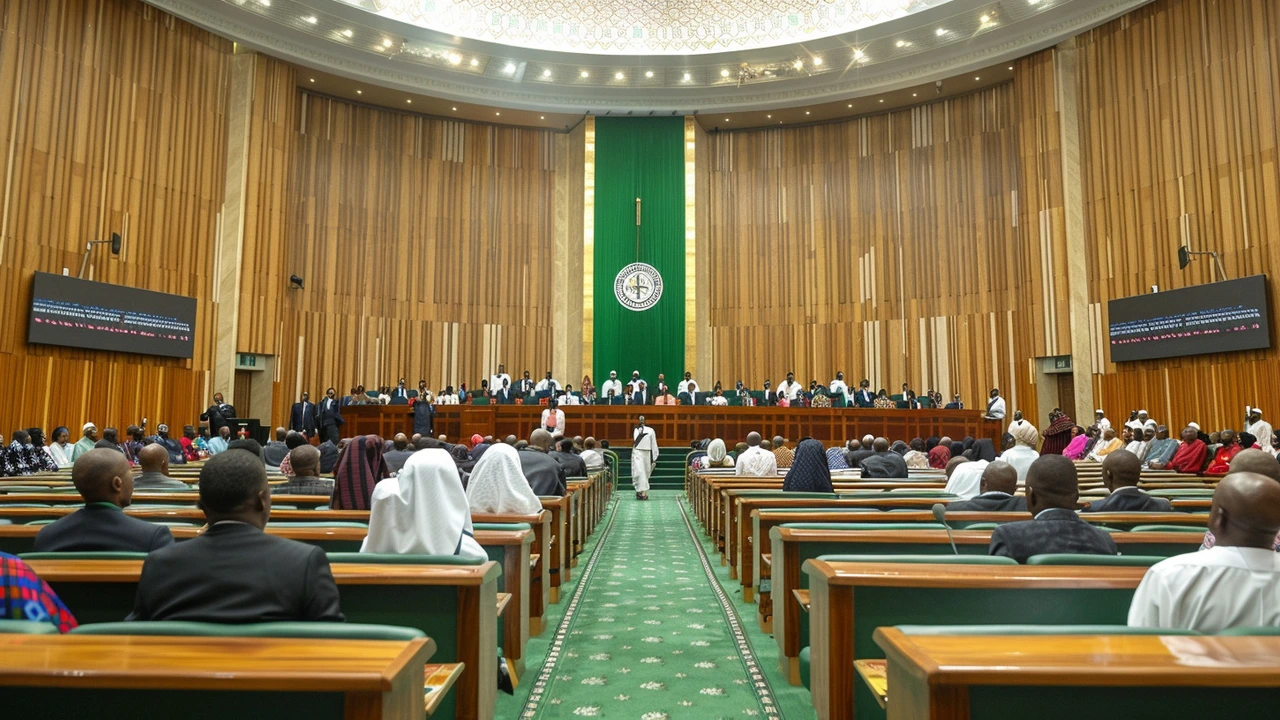
Historical Context
The original anthem, 'Nigeria We Hail Thee,' was introduced when Nigeria gained independence from British colonial rule on October 1, 1960. It remained the symbol of national unity until 1978 when it was replaced during a period of military governance. The subsequent anthem, 'Arise, O Compatriots,' written by John A. Ilechukwu, became the new representation of Nigeria's aspirations and challenges.
The political shift back to the original anthem not only commemorates the past but also seeks to inspire a renewed sense of unity and purpose among Nigerians. It’s a reminder of the values and hopes that were present at the nation’s inception, which, despite the challenges, remain relevant today.
The Role of Governance in National Identity
President Tinubu's administration has been characterized by initiatives aimed at bolstering national identity and unity. By reintroducing the old anthem, the government underscores the continuity of Nigeria's democratic journey and its commitment to preserving national heritage. Lawmakers, many of whom vividly remember the previous anthem from their youth, have expressed a mix of nostalgia and optimism, viewing the change as a positive affirmation of Nigeria's enduring spirit.
This return to the original anthem also represents a broader effort by the Tinubu administration to foster a more inclusive and reflective national identity. By embracing historical symbols, the government seeks to heal divisions and promote a sense of belonging among all Nigerians, regardless of ethnic or regional backgrounds.
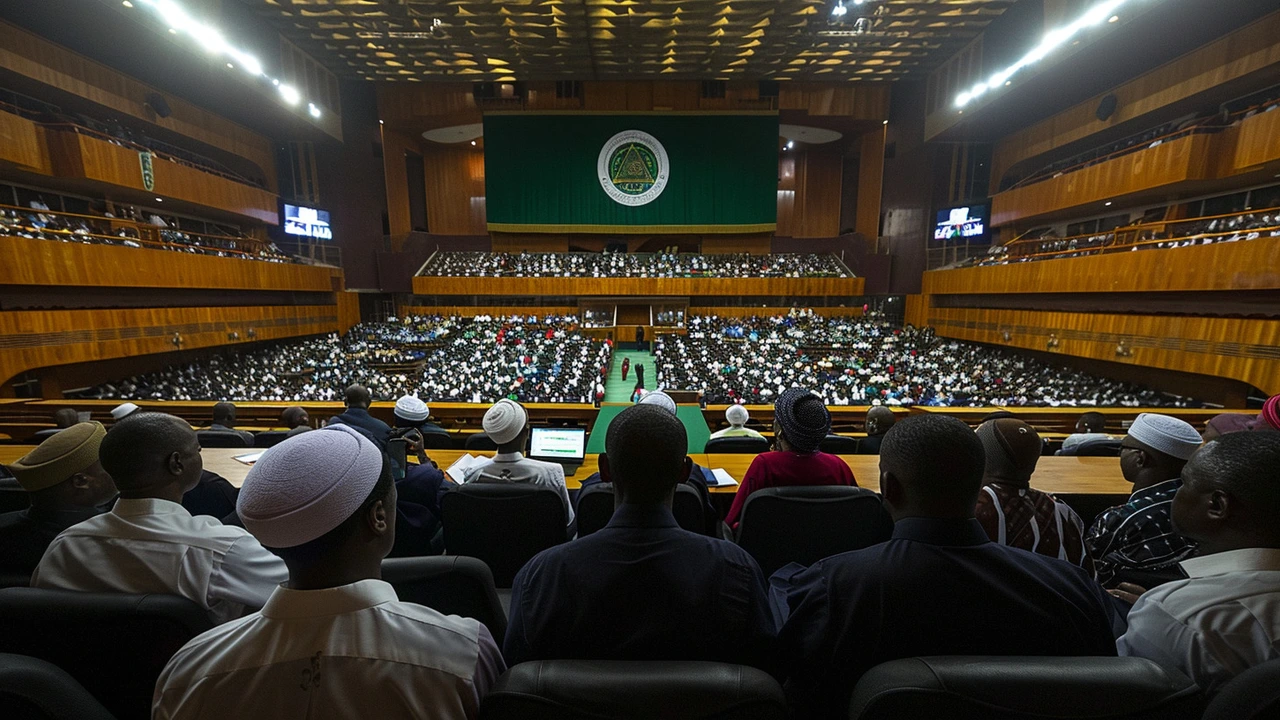
Public Reception and Future Implications
As the news of the reversion to 'Nigeria We Hail Thee' spreads, public reaction has been largely positive. Many citizens, especially the older generation, feel a deep connection to the original anthem and appreciate the government's recognition of their memories and experiences. The younger generation, although unfamiliar, are encouraged to learn and understand the historical significance of the anthem, fostering a deeper appreciation for the nation's journey.
The next steps involve the widespread dissemination of the original anthem's lyrics and tune, to ensure all citizens can participate in this historic transition. Public institutions and schools are expected to incorporate the anthem in their daily routines, ensuring it becomes ingrained in the nation's consciousness once again.
Conclusion
The reintroduction of 'Nigeria We Hail Thee' as the national anthem marks a poignant moment in Nigeria's history. It represents a homage to the nation's past, an affirmation of its democratic values, and a hopeful gesture towards a united future. As Nigerians from all walks of life gather to sing the anthem once more, they are reminded of their shared heritage and the collective aspirations that bind them together as one nation.
This pivotal change not only commemorates Nigeria’s independence but also sets the stage for future generations to carry forward the legacy of unity, pride, and resilience. As the nation collectively embraces this historical anthem, it continues to stride forward on its path of democracy and progress, ever mindful of the values and dreams that lie at the heart of its identity.

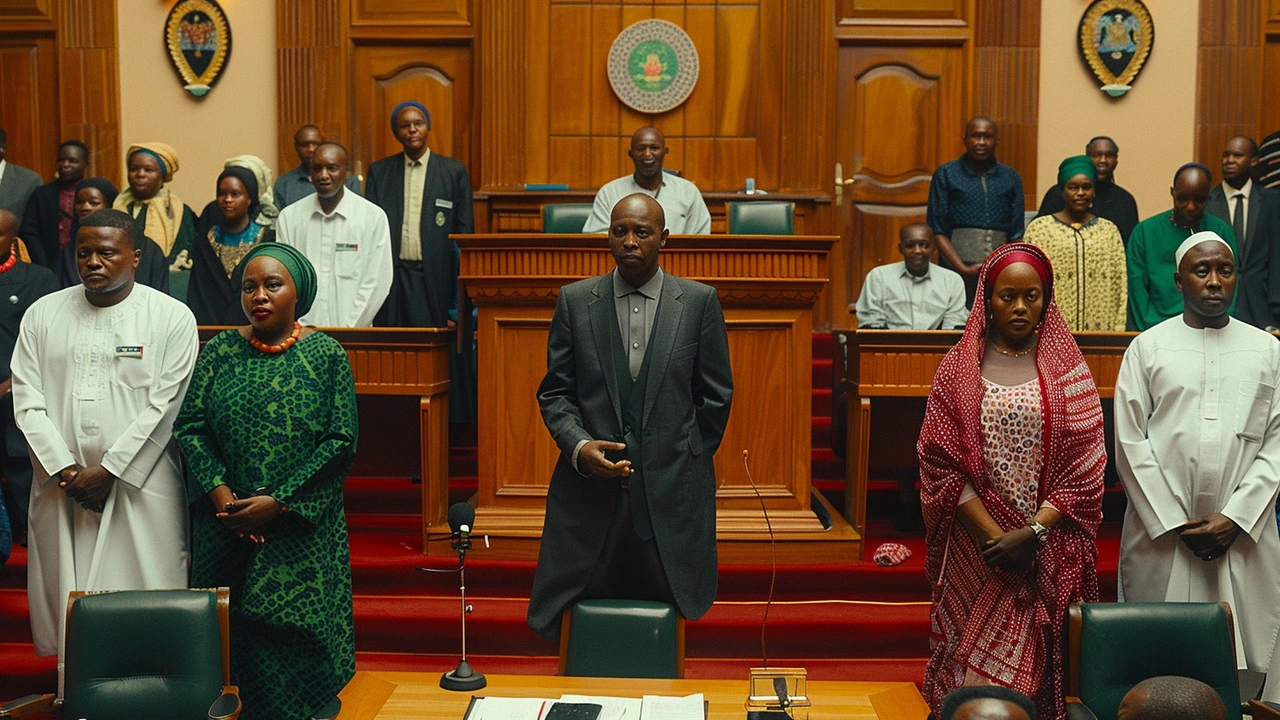
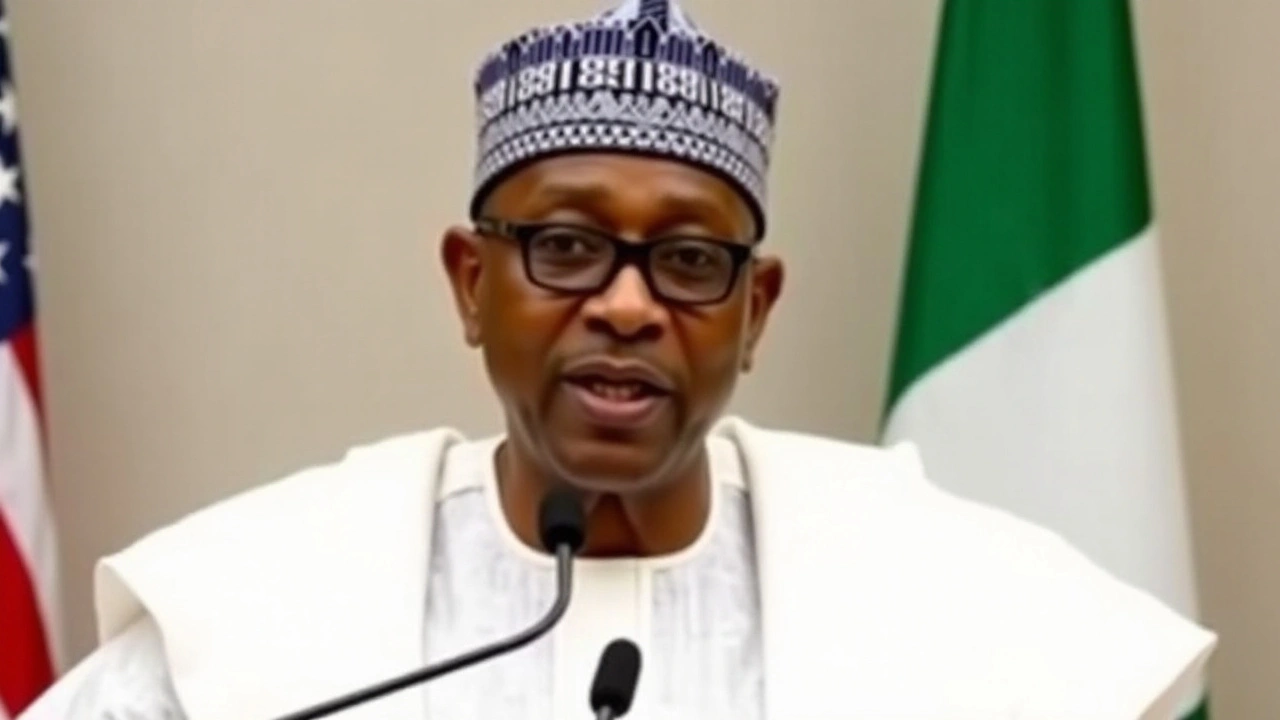


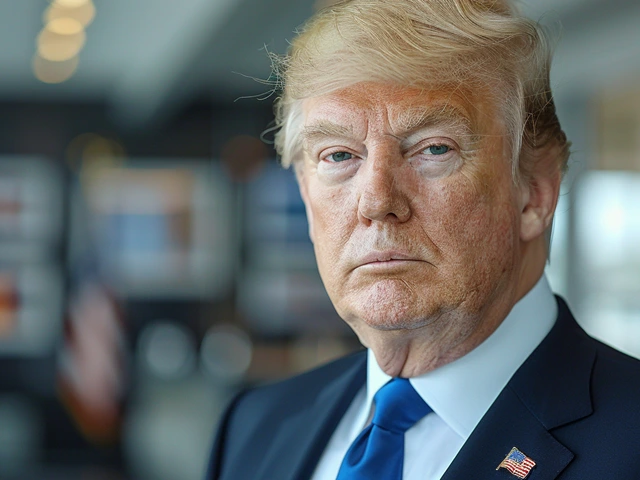



Dee Boyd
May 30, 2024 AT 00:10 AMThe reinstatement of "Nigeria We Hail Thee" constitutes a paradigm shift in the nation's semiotic landscape, reaffirming the primacy of indigenous cultural hegemony. By codifying the original lyrics into statutory law, the legislature operationalizes a retroactive alignment with pre-military iconography. This move also serves as a corrective mechanism, recalibrating the collective memory to reflect authentic post-colonial narratives. Such policy enactments underscore the imperative of preserving socio‑political continuity through symbolic repertoires. Ultimately, the anthem's revival fortifies national cohesion without resorting to populist posturing.
Emily Kadanec
May 30, 2024 AT 01:34 AMYo, the old anthem’s verses are actually pretty simple – "Nigeria, we hail thee" repeats a lot, and the chorus goes “O God of all creation, grant us peaceful nation.” It’s definitely not a new song, just a re‑press of the 1960s melody that many of us grew up hearing on the radio. The lyrics were originally written by Lillian Jean Williams and the music by Frances Berda, so we’re basically getting back what the country definatly recieved at independence. It’s cool that the government is finally doing something that many older folks have been asking for years.
Rahul Sharma
May 30, 2024 AT 02:40 AMIndeed, Emily, the historical provenance of the anthem warrants meticulous scholarly attention; the lyrical composition was authored in 1960 by Lillian Jean Williams-an oft‑overlooked literary figure-while Frances Berda, a maestro of mid‑century orchestration, provided the melodic framework. The lyrical structure follows a classic ternary form, facilitating communal participation during civic ceremonies; furthermore, the harmonic progression adheres to a diatonic schema, thereby ensuring accessibility across diverse vocal ranges. By reinstating this composition, the Nigerian Parliament not only restores a cultural artifact but also re‑establishes a tangible link to the nation’s foundational epoch-an act that is both politically symbolic and musically consequential.
william wijaya
May 30, 2024 AT 04:04 AMListening to the renewed chorus on the news brings a wave of nostalgia that’s almost cinematic; you can feel the collective heartbeat of a country stepping back into its own story. The anthem’s swelling strings and solemn verses echo the aspirations that made the original generation dare to imagine unity amidst diversity. It’s a powerful reminder that even amidst today’s challenges, music can serve as a bridge, binding together the hopes of the youth and the memories of the elders. In moments like this, the sound of “Nigeria We Hail Thee” feels like a rallying cry for resilience and shared destiny.
Lemuel Belleza
May 30, 2024 AT 05:10 AMIt’s a nice sentiment, though I think the hype might be overblown; the anthem is just a song after all.
faye ambit
May 30, 2024 AT 06:34 AMThe re‑adoption of a historic anthem invites us to contemplate the dialectic between memory and identity; by singing the same verses that once echoed at independence, citizens engage in a ritual that blurs temporal boundaries. Such symbolic continuity can nurture a sense of belonging that transcends ethnic and regional divides, fostering an inclusive narrative where every voice is heard within the same melodic framework. In this way, the anthem becomes more than a composition-it transforms into a living testament to the nation’s enduring ideals.
Subhash Choudhary
May 30, 2024 AT 07:57 AMMan, finally we got the old jam back! It's cool to hear it in schools again, feels like a throwback to the good old days.
Evelyn Monroig
May 30, 2024 AT 08:47 AMThe government’s “heritage” push is just a cover for deeper control tactics.
Carol Wild
May 30, 2024 AT 10:27 AMIt is astonishing, yet somehow predictable, that the legislative body would choose to resurrect a piece of cultural heritage that has lain dormant for nearly half a century, especially when one considers the myriad subtle power dynamics at play behind such ostensibly benign gestures. The timing coincides suspiciously with a series of covert agreements being brokered behind closed doors, suggesting that the anthem’s revival may serve as a symbolic distraction from more insidious policy shifts. Moreover, the very act of legislating a nostalgic artifact aligns neatly with a broader agenda to re‑engineer national consciousness, thereby smoothing the path for external influences to infiltrate domestic discourse under the guise of “unity.” Critics who dismiss this as mere sentimentality fail to recognize the intricate choreography orchestrated by unseen hands, whose interest lies in diluting the potency of genuine civic engagement. The lyrical content itself-replete with references to divine providence and collective destiny-functions as a subtle ideological scaffold, reinforcing a narrative that legitimizes top‑down governance structures. One cannot ignore the fact that the anthem’s original composers, though celebrated, were also linked to elite circles that benefited from the post‑colonial state’s patronage networks, a detail conveniently omitted from mainstream recountings. In addition, the re‑introduction of “Nigeria We Hail Thee” occurs concurrently with a surge in surveillance technology deployments, a correlation that raises more than a passing curiosity. While the public revels in nostalgic performances, shadowy entities are likely calibrating the anthem’s emotive resonance to fine‑tune public sentiment in favor of forthcoming constitutional amendments. The episode also underscores a recurring pattern wherein symbolic gestures are weaponized to pre‑empt critical discourse, thereby ensuring a compliant electorate that is too enamored with heritage to question contemporary policy trajectories. History teaches us that such maneuvers are not novel; they echo the orchestrated cultural revivals employed by authoritarian regimes to cement their legitimacy. Consequently, the anthem’s comeback should be interrogated not merely as an act of cultural preservation but as a calculated component of a larger, covert strategy to reconfigure the nation’s sociopolitical architecture. Ultimately, any genuine celebration of heritage must be decoupled from ulterior motives, lest the people unwittingly become participants in a grand theater of manipulation. Furthermore, the legislative speeches surrounding the bill are peppered with euphemisms that mask underlying fiscal reallocations earmarked for projects benefiting a select cadre of multinational corporations. Finally, the absence of robust public consultation during this process betrays a democratic deficit that cannot be reconciled with the anthem's professed ideals of unity. In sum, the re‑adoption of this historic anthem is a multifaceted maneuver demanding vigilant scrutiny.
Ethan Smith
May 30, 2024 AT 11:34 AMWhile I acknowledge the concerns raised, it is worth noting that the legislative process included public hearings and that the anthem’s historical significance is widely recognized across the political spectrum. The reinstatement aligns with documented cultural preservation efforts and does not inherently imply ulterior motives. Nonetheless, transparent oversight remains essential to ensure that symbolic actions are complemented by substantive policy benefits.